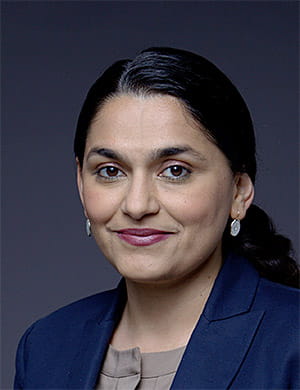
Thought Leadership
How to Choose a Professional Development Program: Three Questions to Help Resolve the Executive’s Dilemma
By Naini SerohiAs a program director and instructional designer, I must juggle many factors to create programs that appeal to a wide array of learners. My goal: create an experience that becomes a catalyst for professional transformation. There is no secret formula. But at their core, professional development programs must appeal to the learner’s beliefs, preferences and goals.
Most professionals who join executive development programs are looking to build capacity in a safe and energizing place where they are free to try out new ideas and approaches with guidance from the instructor and members of the class. Given the myriad choices in the executive education marketplace, it is important to understand which professional development program will be the best fit. What should the learner look for when perusing options? Consider the following three questions:
1. Are you in the objectivist, the pragmatic or the interpretive camp of learning and knowledge?
Do you believe that all knowledge is an external collection of facts and theories already discovered (or waiting to be), and we simply need to master them? Or do you believe that even though knowledge is external and objective, it can only be useful through experience and application? Or is it completely subjective and internal, and we learn by constructing new knowledge based on context, our previously built ideas on the subject, and by discussing it with other people?
Ideally, executive programs provide learning opportunities that appeal to all three camps, distilling research findings and best practices into application while allowing for new perspectives to emerge through classroom sharing.
2. How do you perceive the instructor’s role in your learning process? There are three styles to consider: In a behaviorist style classroom, the instructor is the expert source of knowledge, and participants are the passive recipients of information. The goal is mastery, and participants learn from lecture, repetition and practice, and they receive rewards and consequences for their learning performance.
In a cognitivist style classroom, the instructor encourages participants to make the learning goal-directed, interact with the material, apply it to real life and observe and reflect on the effects of their decisions. This type of classroom features group conversations and experiences. Participants learn from the instructor and each other via experiential exercises, case studies, field trips, learning journals and concept maps.
The constructivist instructor teaches from the assumption that the students are already coming to the classroom as experts. The instructor facilitates the sharing of knowledge and focuses on solving problems and answering questions. Here, learners are encouraged to make mistakes, monitor their own progress and reflect on and talk about their own experiences. Collaborative discussion forums are at the core of this type of learning.
In his book, Connectivism: Learning as Network Creation, George Siemens highlights the role of social networks in the learning process and the constantly changing nature of knowledge. He also examines the learning and unlearning that occurs as knowledge changes. Learning not only comes from the networks, it is the network itself. Executive education provides an opportunity to tap those networks, to discover new things and, ultimately, to transform. The executive education classroom needs to incorporate a mix of all three teaching styles so participants may learn, unlearn and create new wisdom to meet their transformational learning goals.
3. The question of relevance While one’s beliefs about knowledge and preference for a particular approach in the classroom are important to the impact of the executive education experience, making sure the program meets your criteria for personal and career relevance is crucial. What is the gap you are trying to bridge? Is your career trajectory shifting? Do you want to deepen your expertise in a particular area? To ensure the most transformational experience, be sure that there is some spark inside of you that ignites at the prospect of attending a particular program.
Recognizing the importance of a comprehensive approach to program design coupled with a clear understanding of your career goals will not only change how you assess professional development options, it will enhance your ability to effectively engage in the transformational process of learning.
Isn’t it time for a change?
 |
Naini Serohi works with Kellogg’s Executive Education team, designing and supporting programming for open-enrollment and custom programs. She currently serves as the Academic Director for the Indian School of Business Global Advanced Management Program, IPADE School of Business EMBA Program and the Kellogg Merrill Lynch Financial Boot Camp for Executives Program. Serohi is also the Program Director for the Executive Development Program, one of the flagship programs at Kellogg. In her first two years at Kellogg, she served as the Academic Director for 14 open-enrollment programs for nonprofit executives. |
Download a Brochure >
Spaces are limited. Register today.
Executive Development Program
The Kellogg Executive Development Program transforms organizational leaders. It equips top-performing, mid-level to senior managers to make decisions and take strategic action based upon both traditional and innovative business practices. Participants build skills and awareness as they realize their potential for assuming general management roles.
Upcoming Sessions
|
October 11 - 30, 2026 Start: October 11 at 5:00 PM End: October 30 at 11:45 AM
LOCATION:
|
$39,500
|



